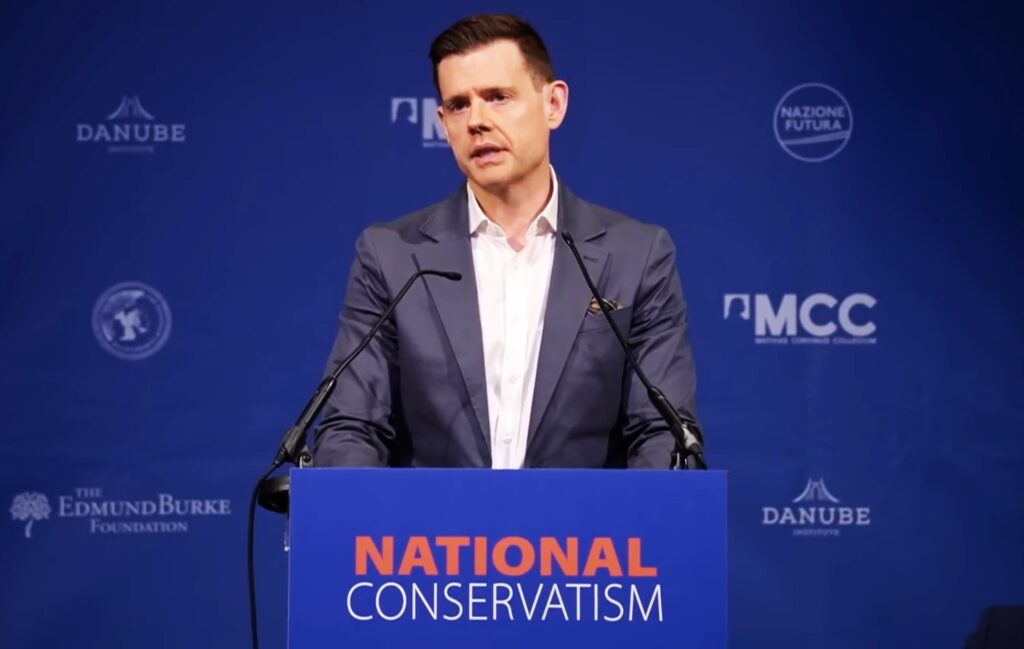It was one of the great blogospheric takedowns of scientific misinformation.
In a February 2009 anti-global warming column, the Washington Post’s George Will wrote that “according to the U.N. World Meteorological Organization, there has been no recorded global warming for more than a decade, or one-third of the span since the global cooling scare.” It wasn’t the only wrong or misleading claim in the column, but it was perhaps the most outrageous—for the World Meteorological Organization (WMO) not only supports but documents the mainstream scientific view that humans are causing global warming. Indeed, as of the time Will was writing, the WMO had pointed out a much more relevant statistic: Of the 10 hottest years on record, at least 7 had been in the 2000s.
When Will’s column came out, a feeding frenzy ensued in the scientific and environmental blogosphere. Bloggers wanted to know why a columnist writing for such an important paper could get it so dramatically wrong, and abuse reputable sources with such impunity—did any fact checking actually occur? Were there any standards at all for the handling of scientific information in the media?
Will’s column therefore became a case study, and the scandal eventually made its way not only to the Washington Post ombudsman, but also to the oped and letter pages, where WMO secretary general Michel Jarraud corrected Will, as did I. Will never retracted his claims, and the Post did not run an official correction–but still, it was a considerable accomplishment in terms of balancing the record, not only in the blogosphere but in the old media publication where the problem had actually begun.
Okay. Deep breath.
This history, it seems to me, is necessary context for thinking about a more recent blowup about another George Will column—this one, in which Will argues that incoming congressional Republicans, eager to slash the federal budget, should not cut our needed investments in research and scientific innovation–because the potential they hold for the economy is huge.
For this, Joe Romm quickly labeled Will “hypocrite of the year” (and it’s early), pointing out not only Will’s transgressions against climate science, but also the history of GOP attacks on, and impediments to, clean energy innovation. Meanwhile Andy Revkin posed some hard questions: Would Will also endorse GOP moderate Sherwood Boehlert’s call to incoming legislators to respect climate science? And precisely what part of the federal scientific portfolio would he like to increase?
Very good things to ask—but my take on Will is a bit different. I agree with Romm that he’s a hypocrite—but I’m also sure Will doesn’t think of himself as one.
The truth is that you almost never find an “anti-science” ideologue who welcomes the label. Indeed, even as we have constant fights over the science of climate change, evolution, and vaccination, the U.S. public professes to have very high levels of trust in science and confidence in the leaders of the scientific community–at least in the abstract.
So what’s going on here? For after all, George Will is hardly the only case like this—Newt Gingrich, for instance, was another big time Republican science booster. But when he ran Congress, attacks on science were rampant on issues like climate change and ozone depletion.
Psychologists have a theory called “cognitive dissonance,” which seeks to explain how we resolve uncomfortable contradictions in our minds in a way that makes us feel better about ourselves and our identities. So for instance: “I’m a really kind, caring person” and “I really hate that person” don’t go together very well—unless the contradiction can be in some sense resolved: “That person deserves it.” Or let’s try another one: “I’m a smoker” and “Smoking kills” don’t really go together—unless the contradiction can be resolved: “Smoking keeps me thin and I’ll quit in a few years when being thin matters less to me.”
You can probably see where this is going. I can’t say what Will actually thinks of himself. And I don’t know whether he’s ever experienced any acute sense of cognitive dissonance. But I am willing to bet that he does not consider himself to be virulently anti-science, and that he sees no contradiction between his recent “rah rah research” column and his long history of climate denial columns.
Rather, it’s more likely Will thinks that climate science, being corrupt (in his mind), gives the rest of science a bad name. Indeed, he may well think that he’s a truer science defender than those of us who fail to call out the corrupt climate researchers (again, in his mind), as he does.
In the spade-spade department, it’s very very important to point out just how dishonest Will has been on the topic of climate change. As I discussed with political scientist Brendan Nyhan on a recent episode of the Point of Inquiry podcast, if we want a healthier and more wholesome information environment then we need “naming and shaming” of pundits and elites who mislead the public about basic facts.
But at the same time, you have to admit: Will’s pro-science pretensions are politically beneficial. He’s much more likely to be heeded by incoming Republicans than I am. They don’t consider themselves anti-science either, I’m sure. And even if it isn’t climate science, there are areas where Will could influence them positively—for instance, getting them to reconsider what appears to be a very ill-conceived plan of budgetary attacks on the National Science Foundation.
Does this mean we should praise Will when he’s right but attack him when he’s wrong? Does it mean we should nod knowingly? I’m not sure. In a world of gray, rather than black and white, I’m open to suggestions.
Subscribe to our newsletter
Stay up to date with DeSmog news and alerts






